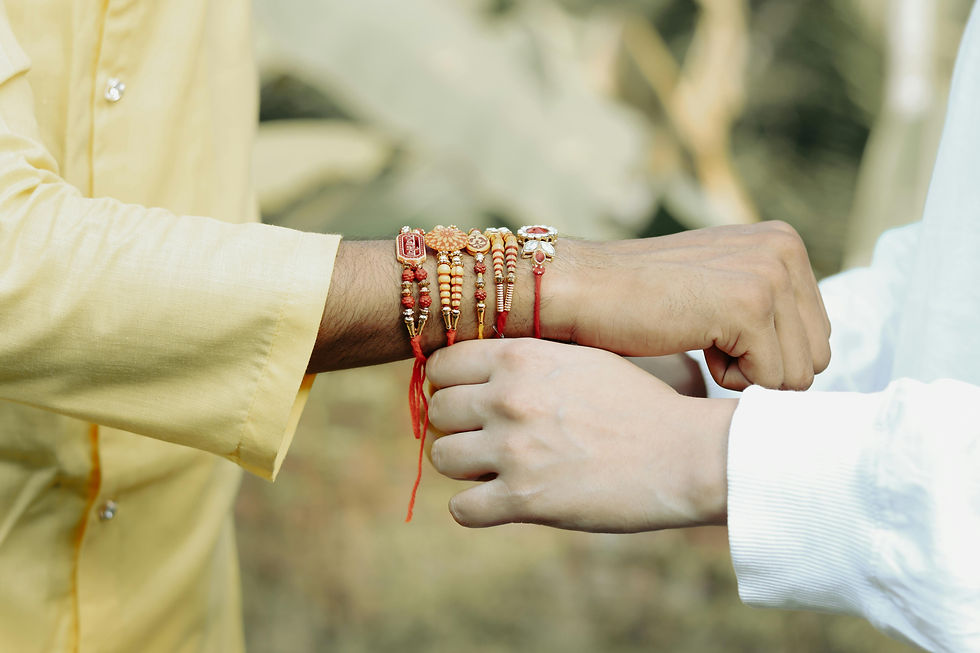THE FESTIVAL REVOLUTION: HOW WOMEN ARE REWRITING RAKSHA BANDHAN
- Mehak Aggarwal
- Aug 7, 2025
- 2 min read
The festival morning arrives with familiar sounds: the rustle of sarees, the clink of bangles, and the gentle hum of prayers. But lately, with Raksha Bandhan, something fundamental has shifted. Across living rooms throughout India, women are quietly rewriting one of the country's most cherished traditions, transforming it from a ritual of dependence into a celebration of self-reliance and sisterhood.
For generations, Raksha Bandhan followed an unwavering script. Sisters would tie sacred threads around their brothers' wrists, seeking protection in exchange for promises of lifelong care. The festival reinforced a simple narrative: women as seekers of protection and men as guardians. But today's young women are crafting a different story entirely.
Digital Age, Ancient Ritual
The transformation is most visible on social media, where viral reels show women tying rakhis to sisters, friends, and even themselves. This digital amplification has created a ripple effect, particularly among Gen Z women who prioritise emotional equality over traditional gender roles. The reimagining addresses long-standing critiques of Raksha Bandhan's gender dynamics, challenging the notion that protection flows in only one direction. Instead, the sacred thread becomes a symbol of solidarity between sisters, chosen families, and women acknowledging their own capacity for self-protection. The movement reflects broader cultural shifts around emotional labour and gender equality, making festivals more reflective of personal truths rather than prescribed roles.
Meet the Changemakers

Binal (Instagram: @binal_valand), a product and food stylist, embodies this transformation. Growing up in an all-girls household, Raksha Bandhan was never absent, celebrated with cousins and neighbours. But as the sisters matured, the emotional core of the festival shifted.
“There's a significant age gap between me and my sisters, but growing up taught us that we've always been each other's constant,” Binal reflects. “The rakhi became less about tradition and more about the quiet strength we share.”
Following the loss of their father, the four sisters have drawn even closer. “After losing our hero this year, we hold each other a little tighter,” she shares. “He didn't just raise daughters; he raised love, strength, and independence. This Raksha Bandhan, we miss him deeply, but we carry him in every thread of this bond.”
For Binal and her sisters, tying rakhis to one another feels like an honest reflection of their relationship. “It's about protecting, supporting, and showing up, not defined by gender but by love.”
Similarly, Tulika, a college student without siblings, has found her own meaningful interpretation. “I would tie rakhis to my best friends—they're the ones who show up for me, who make me feel safe and supported,” she explains. For her, the celebration transcends blood relations, embracing what she calls “bonds that feel like home.”
The New Sacred Thread

This transformation doesn't reject tradition but evolves it to include more voices. The festival's core values of protection, care, and love remain intact. What's changing is who can offer protection and who deserves to receive it.
As this Raksha Bandhan unfolds, the sacred thread carries new meanings. Each rakhi represents mutual support, chosen family, and personal strength. This quiet revolution reminds us that protection can be shared, chosen, or self-given, celebrating the strength found in sisterhood, friendship, and self-love.








